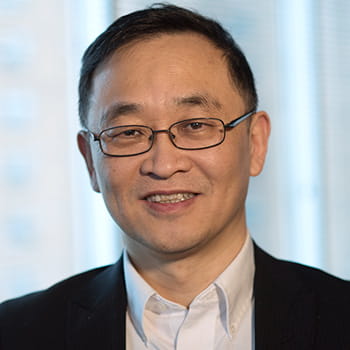Dr. Wang is actively engaged in investigating the differentiation process of hematopoietic stem cells (HSCs) into B lymphocytes, aiming to unveil the intricate mechanisms that govern signaling, transcriptional activities, and epigenetic regulations controling B cell biology. His research endeavors focus on the identification and functional characterization of these regulatory processes.
Recent breakthroughs in Dr. Wang's studies have brought to light a novel and pivotal signal transduction pathway crucial for the development of early B cells and the genesis of B-precursor acute lymphoblastic leukemia. These discoveries significantly contribute to advancing our comprehension of both normal B cell development and the transformative processes leading to leukemia. Importantly, these revelations open up new avenues for potential leukemia treatments.
Moreover, Dr. Wang's recent investigations have uncovered fresh insights into the mechanisms controlling the induction of tolerance in B cells. This newfound understanding serves to mitigate the risk of autoantibody production, offering potential breakthroughs in preventing autoimmune responses.
To conduct these cutting-edge investigations, Dr. Wang employs a range of state-of-the-art technologies, including CRISPR-Cas9-mediated gene editing, single-cell sequencing, ATAC-sequencing, ChIP-sequencing, CITE-sequencing, et al, and sophisticated bioinformatic analyses. The application of these advanced methodologies is poised to provide unprecedented insights into the molecular pathogenesis of human diseases, thereby paving the way for innovative strategies in the prevention and treatment of B-cell leukemia and autoimmune disorders.
